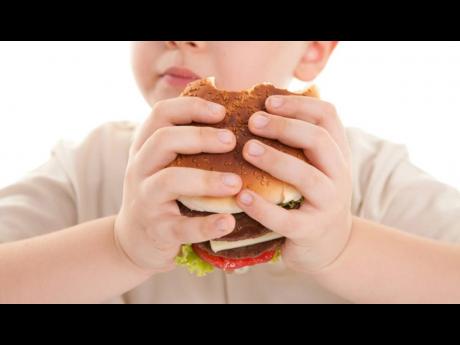Gabay: We need to tackle childhood obesity
With one in three children in the Caribbean overweight or obese, Dr Leslie Gabay, paediatric endocrinologist has encouraged parents to manage their children’s eating habits.
Should this issue go unchecked, there will be devastating implications both on the health and economy of the nation.
“Since I have doing this for 32 years now, with my first clinic when I saw overweight people, they had a hormonal problem. My clinic now is full of people with a eating problems,” Dr Gabay said. “So the dynamics has totally changed and so when we look in our schools, we see a lot more obesity.”
Dr Gabay says that the statistic is one to be alarmed about because problems such as non-communicable diseases, for example, hypertension, diabetes, and heart disease, all start in childhood. To combat this, Dr Gabay suggests a change in eating patterns and behaviours, as these habits are usually developed during childhood.
“When we end up having poor eating habits, poor eating choices, we predispose ourselves to obesity,” said the endocrinologist.
Dr Gabay says that a six-month-old eats more than an 18-month-old toddler because the baby grows faster than the toddler.
“Between 18 months and three to four years, these children are what we call picky eaters because they are eating based on what their body’s requirements are and not on the social clock,” Dr Gabay explained. “So you may find a toddler, today he eats more than the adult and he doesn’t eat for another two or three days and then he eats again.”
On this premise, Dr Gabay explained that children becoming emotional eaters can also lead to obesity as they would have overridden the body’s natural energy system.
“A lot of mothers will give their two- or three-year-old baby a bottle to keep them quiet, so they are sucking as a soother, but they are also drinking, for example, porridge full of carbohydrates and sugar, and this emotional eating then carries on into adult life,” said the endocrinologist. “You feel sad; you go eat something sweet, and it’s only short-lived so in a half-hour, you feel for it again.”
What statistics say
Statistics have revealed that more than 25 per cent (25.6 per cent) of adolescents 13 to 15 years are overweight, 22.8 per cent of them males and 28.2 per cent of them females. Some 10 per cent of them are obese, 10.3 per cent males and 9.9 per cent females.
Dr Gabay suggests that both healthcare workers and parents need to be aware of their child’s weight and the growth changes that are taking place. He said that having regular doctors’ visits is very important, and they should not be taken to the doctor only when they are sick.
Dr Gabay suggested a few tips to help reduce obesity in children. He also explained some of the effects of being overweight and obese:
1 We are seeing that technology is resulting in a more sedentary child. There are certain recommendations that children have no screen time before the age of two, and screen time thereafter, as you get older, should be limited to one to two hours. Screen time includes all gadgets like tablets and phones.
2 We need to look at how any family feeds themselves, as children follow what their parents do; so if the parents have poor eating habits, dietary choices, those are what their children are going to have.
3 Another thing we see is that parents in fact use food as a means of behavioural management, so they say, ‘if you behave properly, you are going to get KFC’ and so on, so rewards are with food, instead of with hugs and kisses, for example.
4 A lot of the issues with obesity in childhood relate to psychosocial issues; in terms of the child’s body image, how they see themselves, the fact that they get teased, they do not feel good about themselves, and they do not have enough friends. This puts the child at risk of depression.

